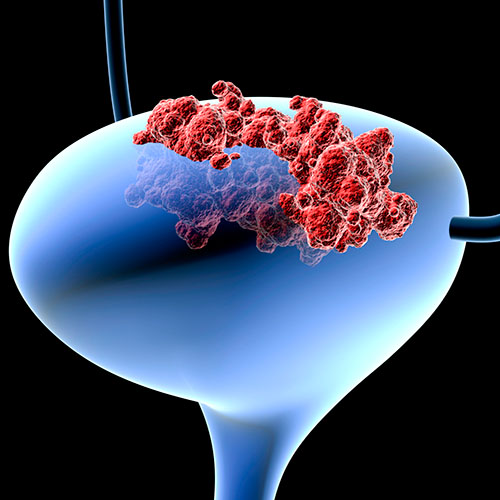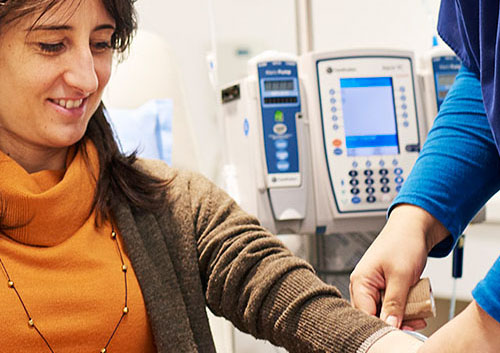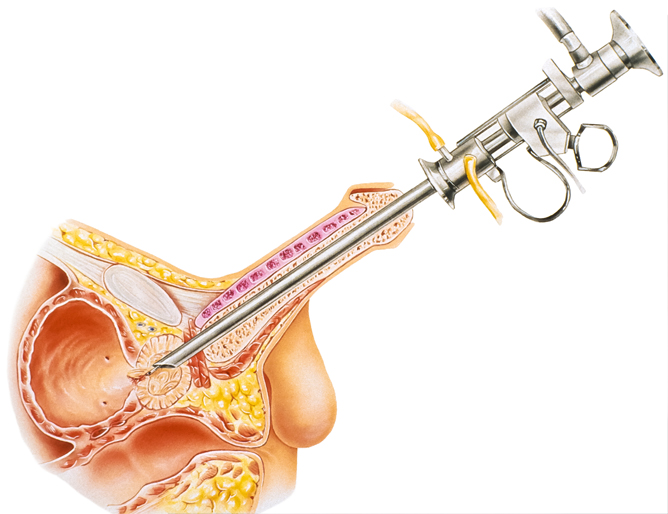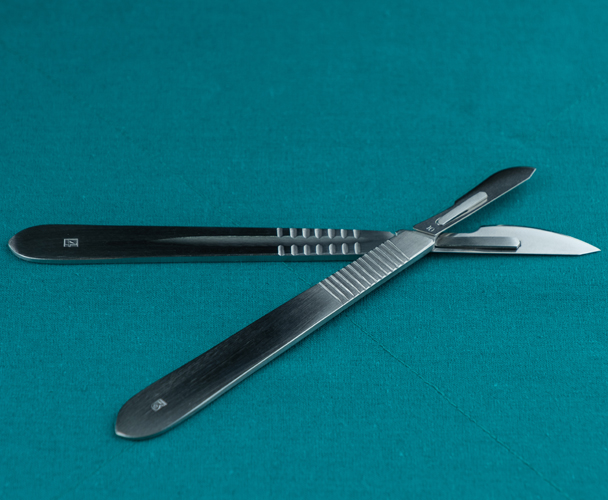Common symptoms of bladder cancer is blood in the urine, irritation when urinating, urgency and frequency of urination.
What is bladder cancer?
A bladder is the hollow organ in that pelvis that stores urine before it leaves the body. Urine is made by the kidneys and then carries to the bladder through ureters (tubes), and when you urinate the muscles in bladder contracts and urine is forced out of the bladder through the urethra. Bladder cancer occurs when the cells in the urinary bladder start to grow uncontrollably. As more cancer cells develop, they start forming tumours and spread to other parts of the body.
In most cases, bladder cancer starts in the innermost lining of the bladder – called the urothelium or transitional epithelium. As the cancer grows through these layers in the bladder wall, it becomes advanced, making it harder to treat. Over time the cancer can spread to other parts of the body such as distant lymph nodes, the bones, the lungs and the liver.
What are the risk factors associated with bladder cancer?
Ethnicity - White people are 50% more likely to develop bladder cancer than black people. Whereas Asians and Indians have a slightly lower chance of developing bladder cancer. These reasons are not yet understood.
Age - The risk of bladder cancer increases with age. Most patients with bladder cancer are over the age of 50.
Gender - Research has found that bladder cancer is more common in men than it is in women. Chronic bladder irritation and infections
Genetics - People with a family history of bladder cancer have an increased risk of developing the disease themselves. This could be because the family members are exposed to the same cancer-causing chemicals – such as tobacco smoke – or they may share changes in some genes that make it harder for their bodies to break down certain toxins.
Prior chemotherapy or radiation therapy
One of the side effects of the long term use of the chemotherapy drug, Cytoxan, is an irritated bladder that could lead to bladder cancer.
Additionally, people who are treated with radiation to the pelvis are more likely to develop bladder cancer.
Transurethral Resection of Bladder Tumours (TURBT)
Transurethral resection of the bladder is a surgical procedure whereby the bladder tumours are removed from the bladder wall. This procedure allows our team of urologists to safely remove tumours or abnormalities as minimally invasively as possible, while preventing the cancerous tissue from spreading.
TURBT is one of the best treatment options for patients with bladder cancer. Unlike traditional operations that often involves the removal of the bladder through open surgery, and the placement of a stoma (a small spout-like hole in the abdomen) which can greatly affect the patient’s quality of life, TURBT allows patients to maintain their quality of life while overcoming a potentially harmful disease.
Transurethral resection of bladder tumours typically cause minor side effects that clear up within a few days. These side effects include:
- Burning sensation when urinating
- Mild discomfort
- Change in the force of urine stream
- Blood in the urine, causing red, dark burgundy, or brown colour
Cystectomy
A cystectomy is a surgical procedure that involves the removal of all or part of the bladder. It can be used to treat bladder cancer that has spread into the bladder wall, or to treat cancer that has come back following treatment.
There are two kinds of cystectomy procedures: Partial cystectomy and radical cystectomy.
Partial cystectomy refers to the removal of parts of the bladder, and is used to treat cancer that is localized to one area within the bladder wall. This procedure is only good when the cancer is not near the openings where urine enters or leaves the bladder.
Radical cystectomy refers to the removal of the entire bladder, nearby lymph nodes, part of the urethra and nearby organs that may contain cancer cells.
A cystectomy is performed through incisions made in the lower belly, but may also be done as laparoscopic surgery.
Surgery
In most cases, the best surgical option to treat bladder cancer is a radical cystectomy, where the whole bladder and nearby lymph nodes are removed.
In men, the prostate may also be taken out because bladder cancer can come back to that area and affect the prostate.
In women, the womb and ovaries will need to be removed as well.
A radical cystectomy procedure can affect the sex life of the patient, as it may cause erectile dysfunction in men and a shortening or narrowing of men. These concerns will need to be discussed before surgery.
Frequently Asked Questions with regards to bladder cancer
-
What are the symptoms of bladder cancer?
-
Who is most likely to develop bladder cancer?
The exact causes remain unknown, but smoking has been found to be the greatest risk factor for bladder cancer, with smokers getting bladder cancer twice as often as people who don’t smoke. Other risk factors include exposure to carcinogens in the environment. Workers in the rubber, chemical and leather industries are at risk, as are hairdressers, machinists, metal workers, painters, textile workers and firefighters.
-
What should I do if I suspect I may have bladder cancer?
Seek medical help. Most bladder cancers can be treated effectively with early detection. Therefore, the most important thing you can do if you suspect you may have bladder cancer is to see an urologist as soon as possible.
-
If bladder cancer spreads, where does it go?
Bladder cancer tends to grow slowly and often does not spread to other parts of the body. When it does spread, it is called metastatic bladder cancer. If it spreads, bladder cancer may go to lymph nodes in the pelvic area or invade other nearby organs, such as the prostate or uterus. Bladder cancer can also spread to distant areas, most commonly to the lungs, bones, and liver.
-
Can someone live without a bladder?
A person can live without a bladder. In fact, many people do. If a surgeon has to remove the bladder to get rid of the cancer, he or she will create a new way for the body to eliminate urine. Before surgery to remove the bladder, the patient meets with the surgeon. At that time they will talk in detail how urination will happen after surgery.






